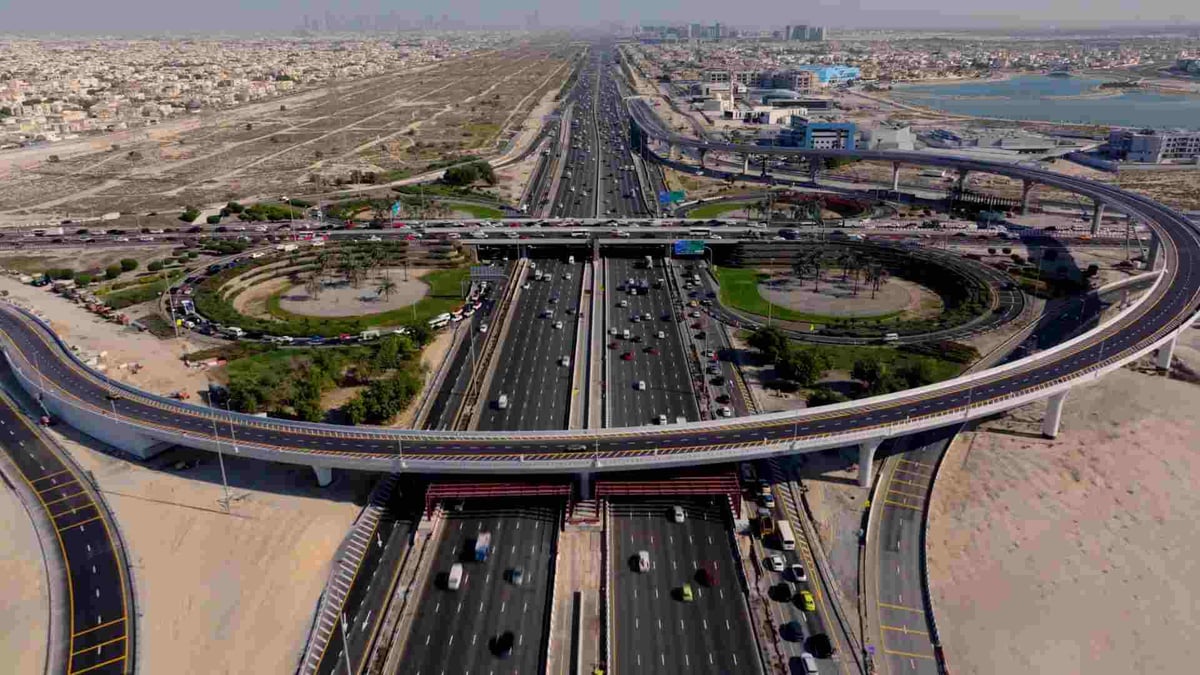The Roads and Transport Authority (RTA) announced the opening of a new 1km bridge in Dubai, which greatly improves traffic flow from Hessa Street to Al Khail Road. This two-lane bridge has decreased the travel time from 15 minutes to just three minutes, providing a “seamless” connection to the city center and Dubai International Airport.
Progress on Hessa Street development project
Additionally, the RTA reported that 54 percent of the AED689 million Hessa Street development project, which includes upgrades to four major intersections, has been completed. All intersections are expected to be fully operational by the fourth quarter of 2025.
#RTA opens a key bridge connecting Hessa Street to Al Khail Road. Spanning 1,000 metres, the bridge is part of a major project to develop four intersections along Hessa Street. It significantly reduces travel time between the two streets from 15 minutes to just 3 minutes while… pic.twitter.com/4aB2L2yEJ7
— RTA (@rta_dubai) December 22, 2024
Commitment to infrastructure improvement
Mattar Al Tayer, director-general and chairman of the Board of Executive Directors of the RTA, stated that the Hessa Street development project, which extends 4.5km from its intersection with Sheikh Zayed Road to its intersection with Al Khail Road, represents an ongoing effort to enhance road infrastructure in line with Dubai’s continuous growth.
Read more: Dubai’s RTA improves access in four neighborhoods for 400,000 residents
Key upgrades and sustainable mobility initiatives
He elaborated that the project includes upgrading four key intersections along Hessa Street: Sheikh Zayed Road, First Al Khail Road, Al Asayel Street, and Al Khail Road. It also involves widening Hessa Street from two lanes to four lanes in each direction. Additionally, a 13.5km cycling track is being constructed to further improve connectivity and promote sustainable mobility.
Supporting residential growth and capacity increase
Al Tayer noted that the Hessa Street development project serves several important residential and developmental areas, including Al Sufouh 2, Al Barsha Residential Area, and Jumeirah Village Circle. By 2030, the population in these areas is projected to exceed 640,000 residents. The project will double Hessa Street’s capacity, increasing it from 8,000 vehicles per hour in both directions to 16,000 vehicles per hour.
Innovative design for cyclists and pedestrians
A key feature of the new cycling track is the inclusion of two “architecturally distinctive” bridges for cyclists and pedestrians, according to the RTA. The first bridge spans Sheikh Zayed Road, while the second crosses Al Khail Road. Each bridge is five meters wide, with three meters allocated for the cycling and e-scooter track and two meters for pedestrian pathways.
Enhancing first and last-mile connectivity
The project is designed to improve first and last-mile journeys, offering seamless access to key metro stations and nearby destinations. The cycling track’s capacity is estimated at 5,200 users per hour.








